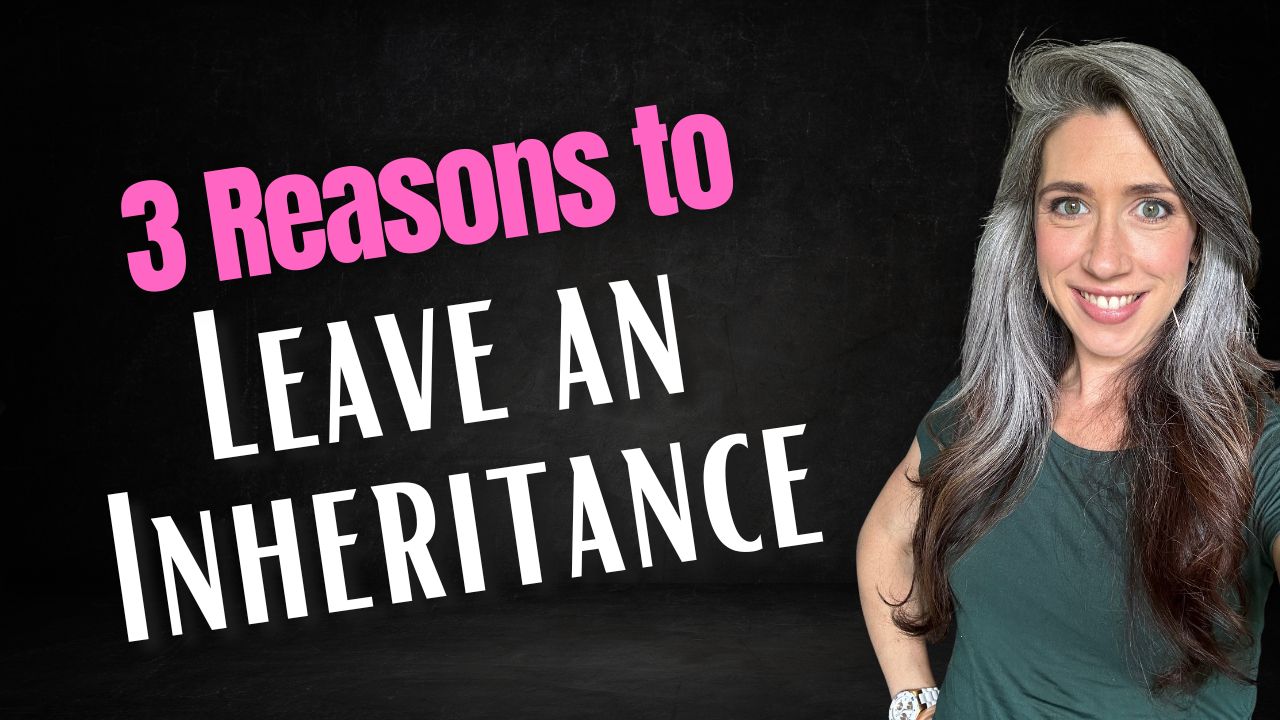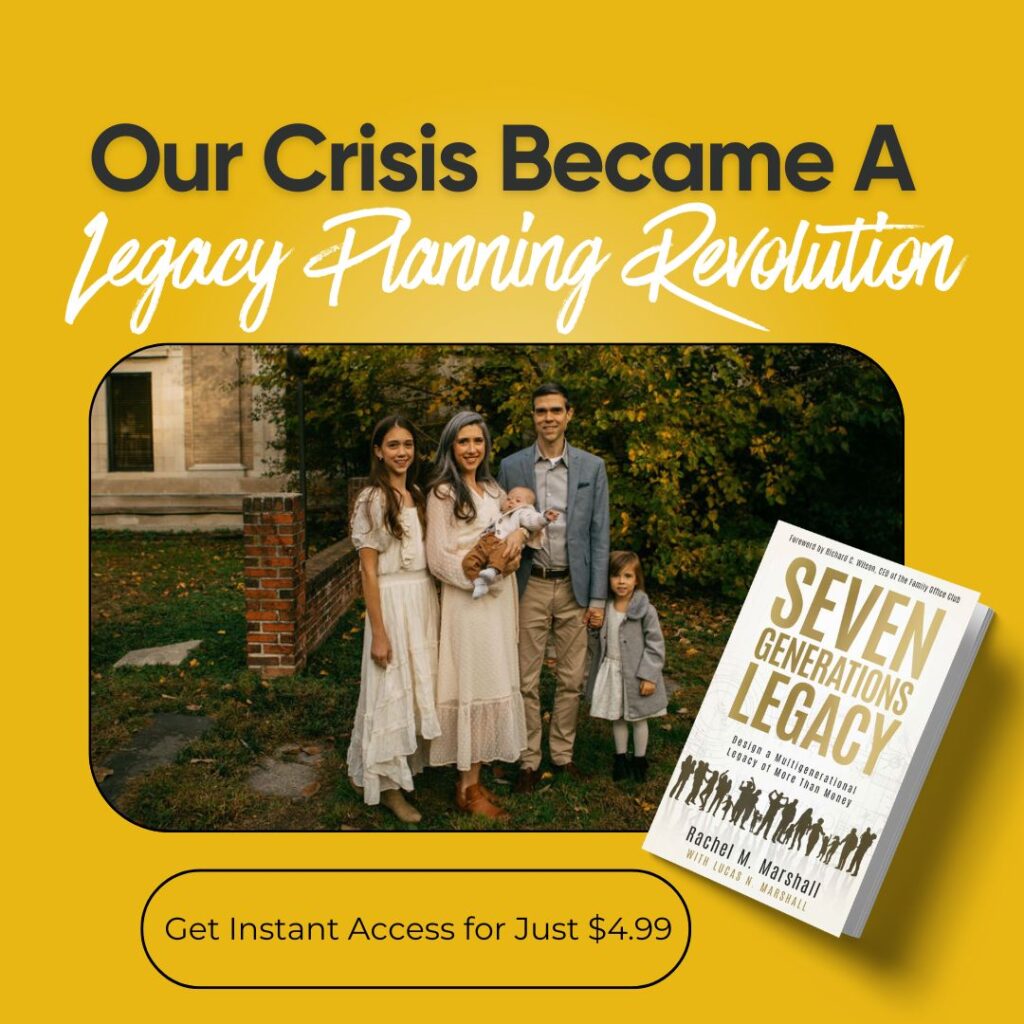
3 Reasons to Leave an Inheritance
Have you ever paused to ponder the legacy you’re creating, the inheritance you’re accumulating, or the lasting impression you’re leaving behind? The thought can be heavy, even daunting – but it’s a conversation worth having. With a focus on infinite banking and the inevitable death benefit that will be left to your heirs, we venture into the complex terrain of legacy and inheritance. For some, this is a familiar landscape, for others, it’s a concept that’s met with conflict. Either way, this episode aims to shed light on the obstacles that accompany the journey of leaving an inheritance.
Looking beyond the immediate, we explore the significance of long-term thinking when it comes to your finances. Drawing wisdom from Proverbs 13:22, we discuss the idea that a good person leaves an inheritance to their children. This principle, when applied to financial decisions, fosters informed choices that benefit not only you but future generations as well. With the help of Nelson Nash’s five principles for creating a robust banking system, we delve deeper into the impact of long-term thinking on the process of wealth accumulation and how money, neither good nor bad, is merely a tool that magnifies one’s character.
If you’re using Infinite Banking, you’re automatically building an inheritance as well. But inheritance is an emotional word. Maybe you’re opposed because it creates problems, feels like it’s too difficult, impractical, or overwhelmed by how to do it well.
Tune in as we talk about long-term thinking, generational wealth, and what’s really best for your kids.
Podcast: Play in new window | Download (Duration: 27:57 — 32.0MB)
Subscribe: Apple Podcasts | Spotify | Android | Pandora | RSS | More
Table of Contents
How Infinite Banking Leads to Legacy
Legacy: it’s the impact you leave behind. For many people, legacy is about what mark they make on the larger world. It’s what people remember them for; their memory. However, legacy can also be financial–and inheritance–and can impact your family not just for a generation, but for many generations when done properly.
The wonderful thing about Infinite Banking is that with it, you’re actually creating your legacy in the background with little effort. While you’re building cash value, you have the death benefit waiting in the wings to be paid to your heirs. This financial legacy is the most efficient way to pass wealth from one generation to the next because you lose as little as possible to taxes, fees, and creditors. Meaning that you can keep your money in the family and provide a basis for the next generation to grow their wealth beyond what you accomplish in your lifetime.
Life insurance isn’t just for leaving a legacy to your family, though. It’s also possible to use it to leave a legacy to your favorite charities and institutions as well.
Regardless of where your money goes, we all need a really powerful reason to motivate us to leave an inheritance. There can be a lot of feelings and emotions tied up in the idea of an inheritance, and some people choose not to leave one at all. If you’re on the fence about leaving a legacy, tune into our conversation as we talk about three reasons to leave an inheritance.
3 Reasons to Leave an Inheritance
1. The Bible Directs Us to Leave an Inheritance
In Proverbs 13:22, the Bible states that a good person leaves an inheritance to his or her grandchildren. The interesting thing about Proverbs is that it’s all about principles to live by, rather than promises from God. It comes directly from the wisdom that God gave to Solomon, so it’s a great source of inspiration when you’re seeking clarity on principles to guide your own life and understand the world by.
If you look at the rest of scripture, it becomes clear that generational lines are of paramount importance. There are many biblical families that can be traced in either direction. An inheritance is a resource you can provide to extend your family’s wealth (and legacy) for generations. There’s something to be said for this thinking.
2. Long-Term Thinking Helps Us Make Better Decisions
Deciding to leave an inheritance requires a lot of thoughtfulness now, even if you anticipate a long and healthy life. For example, the policy you start today could be the vehicle for the inheritance you leave 50 years from now. And all along the way, that requires good stewardship. You want to make choices that keep your policy in good standing and don’t eat away at the death benefit. You may even make choices that grow your income so that you can buy more policies, increasing the inheritance you leave.
The point is that by thinking about the future now, you’re going to adopt a long-term mindset that will lead to better decisions over time. When you’re living financially in the present, you don’t have to think about how your choices will affect your life in 50 years. So you might be more liable to spend than save.
Whether or not the inheritance is your primary goal, choosing to place importance on it can help you make better choices now until your last days.
3. An Inheritance is Actually Good for Your Kids
This can be a controversial statement to make. While all parents want to provide for their children, there’s a common belief that money can corrupt and that leaving children with an inheritance can spoil them. However, we firmly believe that money isn’t good or bad, it’s a tool. It just happens to be a tool that acts as a magnifier of your soul, enabling you to do more of what you were already doing.
[19:05] “So here’s the challenge: the inheritance is never a problem, but the preparation of the children to receive the inheritance is what causes the good use of an inheritance or the poor use of an inheritance.”
Your role as the parent, once you decide you want to leave an inheritance, is to begin preparing your children to receive it. Remember point number 2? You’re not just called to think long-term about how you use your money, you’re called to think long-term about how your children will use it too. And this is just one more piece of the legacy you will leave, one where your children will be good stewards of the inheritance.
This education can take place from day one and doesn’t just have to be financial education. It’s about nurturing your child’s interests and passions, raising them to have strong convictions, and nurturing their entrepreneurial spirit. As they grow, you can help them learn how to create and grow wealth, including their spiritual and social capital.
Book A Strategy Call
Do you want to coordinate your finances so that everything works together to improve your life today, accelerate time and money freedom, and leave the greatest legacy? We can help! Book an Introductory Call with our team today https://themoneyadvantage.com/calendar/, and find out how Privatized Banking, alternative investments, or cash flow strategies can help you accomplish your goals better and faster. That being said, if you want to find out more about how Privatized Banking gives you the most safety, liquidity, and growth… plus boosts your investment returns, and guarantees a legacy, go to https://privatizedbankingsecrets.com/freeguide to learn more.
The Power of Trusts for Generational Wealth with Joel Nagel
If you’re reading this, chances are you’ve already taken the first step towards securing your financial future. But what about the financial futures of your children, grandchildren, or even your great-grandchildren? The journey towards financial stability isn’t a one-generation game; it’s about creating a lasting legacy that will provide for your loved ones long after…
Read MoreEstate Planning 101: Protecting Your Loved Ones
Can you confidently say your family’s financial future is protected? Staring down the barrel of a life-altering moment, I was forced to confront the fragility of existence and the critical importance of having one’s affairs in order. That harrowing experience became a catalyst for today’s soul-searching episode of the Money Advantage podcast, where we navigate…
Read More



